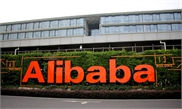Alibaba Cloud to launch more data centers in Thailand, S.Korea, expanding footprint in Asia-Pacific markets

A visitor looks at the smart transportation management system in Malaysia in May 2019, which was developed under the cooperation between Alibaba Cloud and a Malaysia tech firm. Photo: Xinhua
Alibaba Cloud announced on Tuesday that it will launch two new data centers, serving its clients in South Korea and Thailand respectively, as the Alibaba cloud unit further expands its footprint in the Asia-Pacific markets where digital services are booming.The two data centers are expected to become operational in 2022.
Prior to the announcement, Alibaba Cloud had already established hundreds of cloud data centers in 25 countries and regions including Malaysia, Singapore, Indonesia, the Philippines, Japan, Germany, Dubai, and the US, making itself the largest cloud computing platform in Asia.
Over the past three years, Alibaba Cloud has developed rapidly in overseas markets, with its data scale growing more than 10 fold. As the market landscape continues to expand, the reach of Alibaba Cloud services in the Asia Pacific has picked up pace rapidly.
Its third data center in Indonesia was launched earlier this year. "The Asia-Pacific market is the most active market in global digital economy. Especially in Southeast Asia, young people are actively embracing the internet and new technologies. We hope that Alibaba Cloud will work with partners and customers in these markets to jointly promote digital transformation," said Selina Yuan, General Manager of International Business, Alibaba Cloud.
According to Gartner, Alibaba Cloud is the third largest cloud computing service provider in the world, trailing only Amazon and Microsoft, and the largest in the Asia-Pacific region. Its market share in the Asia-Pacific increased from 3.7 percent in 2016 to 9.5 percent in 2020, achieving five consecutive years of expansion.

